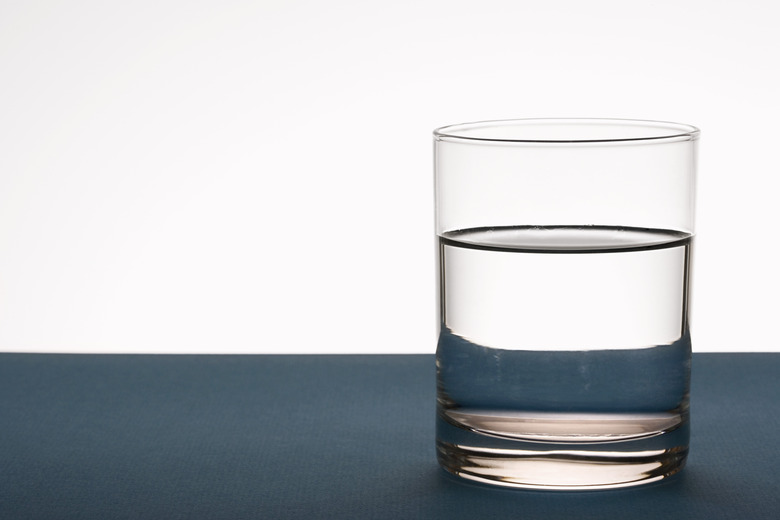How To Neutralize Food Coloring In Water
Chemical reactions can be fascinating to observe. Using household ingredients, you can conduct an experiment that illustrates how to neutralize food coloring in water. While young children may think they are witnessing magic, neutralizing the food coloring with bleach and baking soda is an example of the oxygen molecules in bleach binding to oxygen molecules in the water. When you add baking soda to the other ingredients, the oxidation process occurs more quickly for a vivid transformation from colored water to clear water.
Step 1
Place three drops of food coloring into the bottom of the glass and fill the glass halfway with cool water.
Step 2
Stir the food coloring into the water with the spoon.
Step 3
Add approximately 2 tbsp. of chlorine bleach to the colored water and stir the bleach. You will notice the colored water lighten somewhat, but the color will not disappear.
Step 4
Sprinkle approximately ½ tsp. of baking soda into the colored water and stir the ingredients with the spoon. Within seconds, the water will turn completely clear.
Things Needed
- Clear glass
- Cool water
- Food coloring
- Chlorine bleach
- Baking soda
- Spoon
- Measuring spoons
Cite This Article
MLA
Hatter, Kathryn. "How To Neutralize Food Coloring In Water" sciencing.com, https://www.sciencing.com/neutralize-food-coloring-water-5845152/. 24 April 2017.
APA
Hatter, Kathryn. (2017, April 24). How To Neutralize Food Coloring In Water. sciencing.com. Retrieved from https://www.sciencing.com/neutralize-food-coloring-water-5845152/
Chicago
Hatter, Kathryn. How To Neutralize Food Coloring In Water last modified August 30, 2022. https://www.sciencing.com/neutralize-food-coloring-water-5845152/
